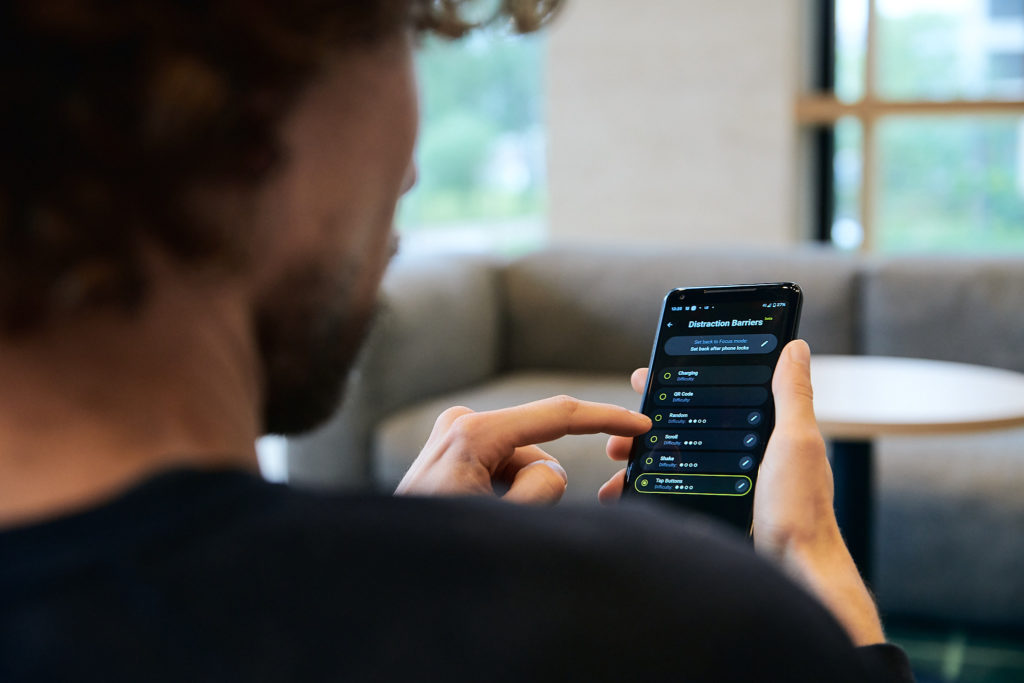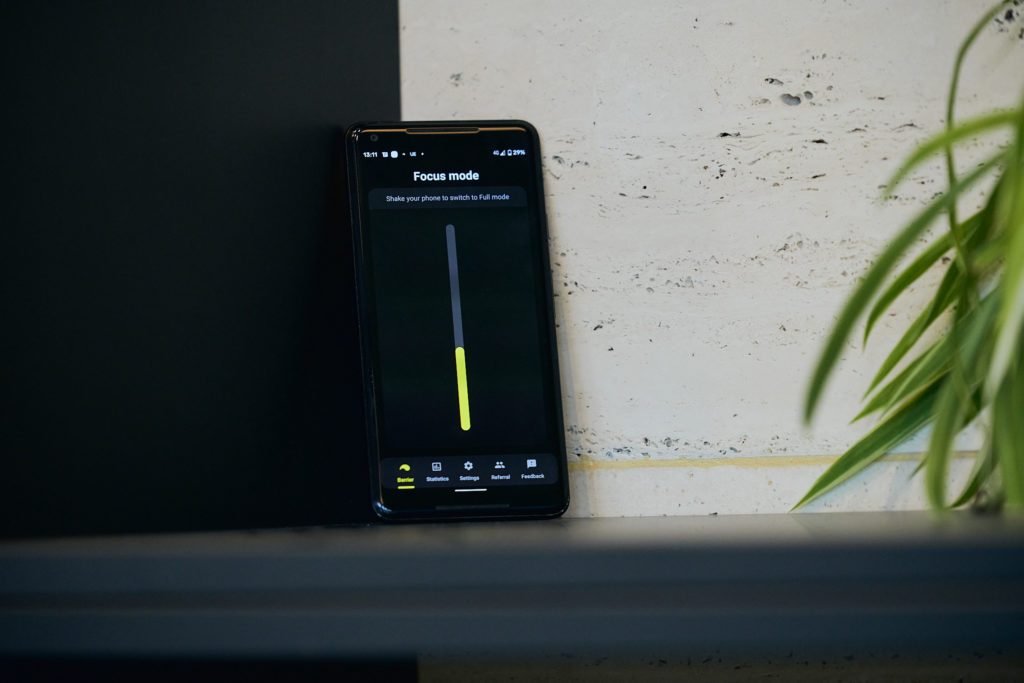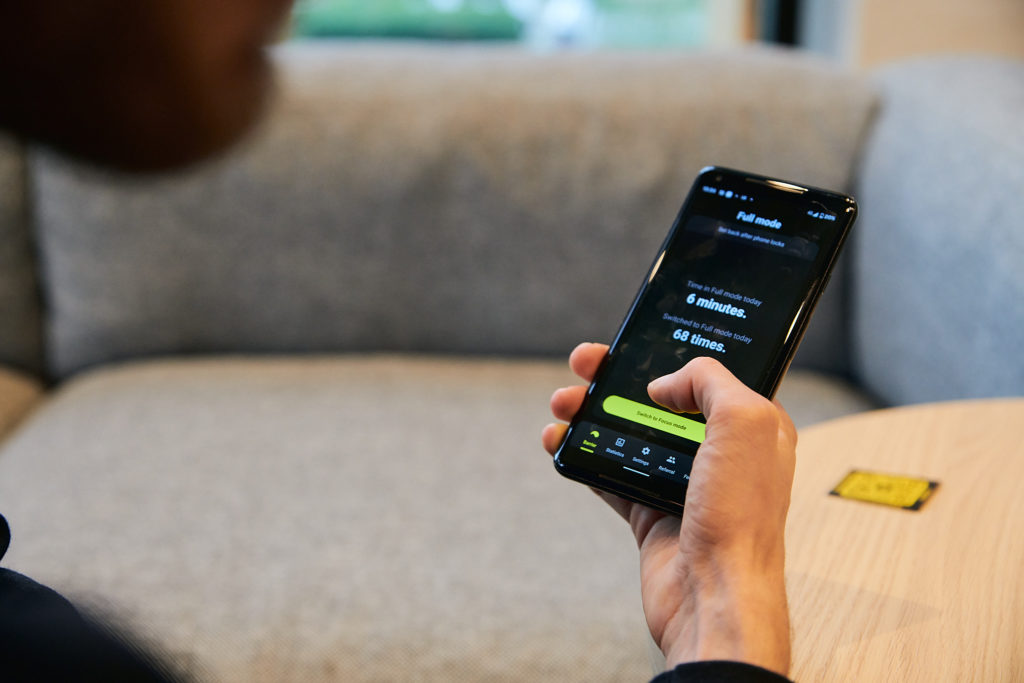Welcome to this edition of our Tools for Thought series, where we interview founders on a mission to help you improve your productivity and take care of your mental health. Jorn Rigter is the co-founder and CEO of Unpluq, which offers products to help users take control over their smartphone usage and focus on the meaningful things in life.
Unpluq offers an efficient way to break bad habit loops, make more conscious choices when using your phone, and to block distractions by default. In contrast to many other software solutions that are too easy to bypass, Unpluq is designed to be very hard to circumvent.
In this interview, we talked about why smartphones should not be automatically associated with distraction, the “hooked” model used by many attention-economy companies, how to remove the trigger from your unconscious habits, how to protect your future monkey-brain self from temptation, and much more. Enjoy the read!
Hi Jorn, thank you so much for agreeing to this interview. First things first, what inspired you to start Unpluq?
It all started during our studies in the Netherlands. My friend (and now co-founder) Tim Smits and I both studied Industrial Design Engineering at Delft University of Technology. Over the years, we often became so distracted by our smartphones that on certain days we couldn’t get half the studying done that we wanted to do that day. For example, we would often want to quickly check something on our phone, and twenty minutes later find ourselves scrolling on Facebook for the past twenty minutes.
When we looked for solutions to solve this problem, we found many apps. But when trying them out, none of them were solving the issue for us. Most of them were way too easy to bypass — they could simply be disabled with a couple of clicks, while others were too restrictive — for example only giving you access to your dialer. We started talking about the issue with other people from our university, and it turned out that many of us had the same problem, and that the right solution didn’t exist yet.
We started thinking about ways to solve this problem, which in a way was very nice, since you’re designing for yourself. Besides apps, other solutions that seemed to work quite well in reducing screen time were minimalist phones, or dumb phones. Here, however, you have the problem that you don’t have access to lots of useful apps, like Google Maps, your calendar, Spotify, you name it. Plus these phones were expensive, and often still require you to have a regular smartphone as well.
The apps that are really the problem, like social media, dating or for some people games, are only a handful of apps on your phone. Most apps are really useful, and most people don’t want to live without them. We initially wanted to create a minimalist phone with this balance in mind. But creating an entire phone costs a ton of money and many years. This gave us an idea: why not turn people’s current smartphones into “minimalist” phones by default?
By blocking the distracting apps on the current smartphone, you would basically have a distraction-free, highly useful device, while at the same time always having access to distracting apps when you want to use them.
That’s quite a unique approach, because “distraction-free” and “smartphone” sound like two antithetic words.
That’s exactly the problem! We have started associating smartphones with distraction, but really it’s only a handful of apps that cause this distraction, while all the other apps are hugely beneficial and make your life a lot easier.
Think about it: you have a device here that was initially designed just to call other people, that can now access any information you would like from the internet at any time, navigate you through unfamiliar cities and be your calendar, news source, alarm clock, music player and so much more. Those things aren’t distracting, they are very useful.
The apps that caused us to start associating our smartphones with distraction are really the social media apps, dating apps and games. These apps are designed to hijack your attention for the longest time possible, because your time in their app is directly related to their profit. If you look at your device now, there are probably not more than a handful of apps that fit this description, while it would be great to always have access to all of the other ones. So what we try to do with Unpluq is really find this balance between the useful apps on your phone and the distractions it inevitably brings along.
That’s amazing. Finding that balance is such a hard problem to solve.
The problem with smartphone distraction is that it’s a very unconscious habit. You might have heard about the “hooked” model that many of the attention-economy companies use to keep you coming back to their platform. This is all subconscious behaviour — checking your phone for something useful and twenty minutes later finding yourself scrolling on social media for the past twenty minutes. Breaking this habit loop, where the trigger is often a notification of a distracting app, or even simply seeing a distracting app on your home screen, is hard to do by pure willpower. Research has shown that willpower is like a muscle, and can also be fatigued.
Unpluq removes the trigger from this “hooked” model, effectively stopping the habit loop from ever starting. This way, you don’t have to spend so much willpower on preventing these distracting apps who are fighting over your attention from taking away your precious time. At the same time, because Unpluq creates a barrier to access your distracting apps that’s high enough to make you aware of what you’re doing, accessing these apps becomes a conscious choice instead of a mindless habit.
And how does Unpluq work, exactly?
Unpluq makes your phone distraction-free by default. Combining a minimalist phone and smartphone into one phone gave us the idea of creating two modes: a distraction-free “Focus mode” and a “Full mode”, where you have access to all of your apps again. When in Focus mode, the distracting apps of your choice are blocked, along with their notifications. To access them, you have to go through one of our Distraction barriers, like shaking your phone for five seconds, or tapping eight buttons.
The transition between these modes should be a barrier that’s high enough to make you think consciously about whether you want to access those distracting apps at that moment – so that the unconscious habit loop becomes conscious again. How big this barrier should be is of course different for different people, so you can customize the difficulty level of the barrier.
This barrier initially was a physical USB key, which you would plug into your phone. We did a successful Kickstarter with this product and sold quite a lot of them so far, but also realized that people liked to first try out the product, before buying it. Also, shipment and logistics was a nightmare. For example, the product was selling quite well in the US, but the shipment time to the US was about 4 to 6 weeks. Also, hardware breaks, so returns and shipping replacements with delivery times like that weren’t the best user experience. That’s why we now introduced the software-only version of Unpluq. We are still planning on introducing the Unpluq Key again later on, as an add-on people can buy in the app, because the feedback from our users has been overwhelmingly positive.
We designed and built Unpluq to be very hard to circumvent. Circumventing it would likely take you more time than it would to go through the distraction barrier. There is, for example, an option to prevent yourself from deleting an app from your phone when you’re in Focus mode. This is to prevent your future self from taking that workaround. It’s also not possible to adjust the distraction barrier in Focus mode. When you really do need to use one of your distracting apps fast, there’s an Emergency mode you can trigger once a day for five minutes.
This is such a great approach. What kind of people use Unpluq?
It’s mostly young adults who want to improve their productivity or want to spend their time in a more meaningful way, often people that either work or study. We also heard from users that benefited from Unpluq because they had trouble sleeping, since they’re scrolling on their smartphone before bed. We also got quite some attention from parents, who wanted to use the Unpluq Key with their kids. This is a group of users we have in mind to design for in the future, since it would require a couple of tweaks in the software.
What are some of the benefits the people experience when using Unpluq?
We recently did an analysis of the time people were saving by using Unpluq. On average, people save 35 minutes a day on smartphone screen time with the free version of Unpluq. With the Unpluq Key, users saved an average of 69 minutes of screen time a day. As a founder, these are awesome results that we’re very proud of, especially since other apps don’t work for most people since they’re not changing their smartphone habits. We also see this in the sheer amount of positive reactions and emails we get from Unpluqqers who say it saved them so much time, or helped them sleep better.
For the curious readers who would like to know how we got to these numbers: on Android you can get the usage time per app for up to a week prior to this date (if you allow us as a user, which about two-thirds of our users do). What we did is save the usage of these seven days the week prior to using Unpluq, and compared it to the usage a couple of weeks in. The difference is the average time saved.
You are right to be proud, saving users 69 minutes a day is a fantastic result! What advice would you give someone using Unpluq for the very first time?
Make sure you prevent your future, monkey-brain self from being too easily tempted. You can create schedules for yourself, where you can for example have social media apps disabled during working hours, but not on the weekends. This way, you don’t have to constantly adjust your distracting apps, because they automatically switch based on your schedules. Another tip is that if you know you’ll be tempted to just delete Unpluq to have access to distracting apps, you can prevent yourself from doing this by enabling the feature where you cannot delete an app in Focus mode. An even more hardcore feature is disabling yourself from having access to your Android settings when in Focus mode.
What’s next for Unpluq?
We are currently in the midst of creating the iOS version of Unpluq. The beta of this app is scheduled to be released around March 2022. If readers want to stay updated about the progress of this app, they can sign up through this page. After that, we will also start looking into creating a laptop solution, since a lot of precious time is being taken away from people on laptops as well.
Thank you so much for your time, Jorn! Where can people learn more about Unpluq and give it a try?
Thank you for the interview. And yes: people can download the Android app through this link, and can find more information on our website. Thanks a lot, I had a lot of fun!



